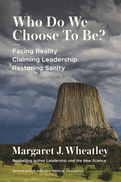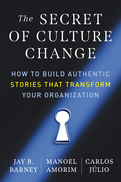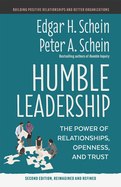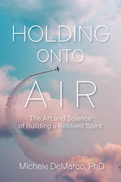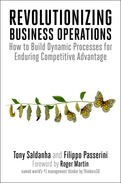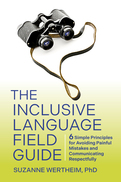Search Results: ""
Results 1237-1242 of 1358
In a world we cannot recognize, how do we find a way forward? In this world we do not understand, how do we know what to do? When so little is comprehensible, what is meaningful work? What is genuine contribution?
Bestselling author Margaret Wheatley has summoned us to be courageous leaders who strengthen community and rely on fully engaged people since her 1992 classic book, Leadership and the New Science, and eight subsequent books. In response to how quickly society is changing and the exponential increase in leadership challenges, this second edition of her latest bestseller is 80% new material.
How do we see clearly so that we can act wisely? Wheatley brings present reality into clear and troubling focus using multiple lenses of Western and Indigenous sciences, and the historic patterns of collapse in complex civilizations. With gentle but insistent guidance to face reality, she offers us the path and practices to be sane leaders who know how to evoke people's inherent generosity, creativity, and kindness.
Skillfully weaving science, history, exemplars, poetry, and quotes with stories and practices, Wheatley asks us to be Warriors for the Human Spirit, leaders and citizens who stay engaged, choose service over self, stand steadfast in the midst of crises, and offer our reliable presence of compassion and insight no matter what.
Bestselling author Margaret Wheatley has summoned us to be courageous leaders who strengthen community and rely on fully engaged people since her 1992 classic book, Leadership and the New Science, and eight subsequent books. In response to how quickly society is changing and the exponential increase in leadership challenges, this second edition of her latest bestseller is 80% new material.
How do we see clearly so that we can act wisely? Wheatley brings present reality into clear and troubling focus using multiple lenses of Western and Indigenous sciences, and the historic patterns of collapse in complex civilizations. With gentle but insistent guidance to face reality, she offers us the path and practices to be sane leaders who know how to evoke people's inherent generosity, creativity, and kindness.
Skillfully weaving science, history, exemplars, poetry, and quotes with stories and practices, Wheatley asks us to be Warriors for the Human Spirit, leaders and citizens who stay engaged, choose service over self, stand steadfast in the midst of crises, and offer our reliable presence of compassion and insight no matter what.
Find out how bold actions by visionary leaders can inspire powerful stories that drive culture change.
Data indicates that most strategic efforts to change a company's culture fail. So how do companies succeed in this endeavor?
A top strategy professor and two highly successful CEOs found that, in companies that had successfully changed their culture, leaders had taken dramatic actions that embodied the new cultural values. These actions inspired stories that became company legends, repeated in every department and handed on to new employees.
Through compiling and analyzing 150 stories from business leaders who have achieved change, they identified 6 attributes that every successful culture change story has in common:
1. The actions are authentic
2. They revolve around the CEO
3. They signal a clean break with the past, and a clear path to the future
4. They appeal to employee heads and hearts
5. They're often theatrical or dramatic
6. They're told, and re-told, throughout the organization
With extensive and inspiring examples of stories containing these attributes, the authors illustrate how readers can harness the power of stories within their company in order to change or create a winning culture to align with any strategy.
Data indicates that most strategic efforts to change a company's culture fail. So how do companies succeed in this endeavor?
A top strategy professor and two highly successful CEOs found that, in companies that had successfully changed their culture, leaders had taken dramatic actions that embodied the new cultural values. These actions inspired stories that became company legends, repeated in every department and handed on to new employees.
Through compiling and analyzing 150 stories from business leaders who have achieved change, they identified 6 attributes that every successful culture change story has in common:
1. The actions are authentic
2. They revolve around the CEO
3. They signal a clean break with the past, and a clear path to the future
4. They appeal to employee heads and hearts
5. They're often theatrical or dramatic
6. They're told, and re-told, throughout the organization
With extensive and inspiring examples of stories containing these attributes, the authors illustrate how readers can harness the power of stories within their company in order to change or create a winning culture to align with any strategy.
Discover a more agile, democratic, and effective model of leadership, from legendary business scholar Edgar Schein and Silicon Valley executive Peter Schein.
Legendary organizational scholar Edgar Schein and former Silicon Valley executive Peter Schein say leadership today requires that people transcend their hierarchical roles and relate to each other as human beings-what they call humble leadership. In such relationships new ideas can flow freely, mistakes can come to light immediately, and course corrections can be made in real time rather than by committee or by order of the lone heroic CEO.
This second edition includes three new chapters. Chapter 1 zeros-in on the Schein's actionable definition of leadership-relative to management and administration-focused on leading people toward new and better. Chapter 2 introduces the concept of situational humility-leaders now need to shift between several types of relationships to deal with the accelerating complexity of a supply-constrained, quiet-quitting, and two-days-in-the-office world. And Chapter 5 explains how to create a culture of humble leadership.
Illustrated with examples from healthcare, government, the military, tech, and more, this is a compact, accessible guide to a leadership paradigm far better suited to a world that demands fast, nimble response to change, and a workplace hungry for mutual respect and trust.
Legendary organizational scholar Edgar Schein and former Silicon Valley executive Peter Schein say leadership today requires that people transcend their hierarchical roles and relate to each other as human beings-what they call humble leadership. In such relationships new ideas can flow freely, mistakes can come to light immediately, and course corrections can be made in real time rather than by committee or by order of the lone heroic CEO.
This second edition includes three new chapters. Chapter 1 zeros-in on the Schein's actionable definition of leadership-relative to management and administration-focused on leading people toward new and better. Chapter 2 introduces the concept of situational humility-leaders now need to shift between several types of relationships to deal with the accelerating complexity of a supply-constrained, quiet-quitting, and two-days-in-the-office world. And Chapter 5 explains how to create a culture of humble leadership.
Illustrated with examples from healthcare, government, the military, tech, and more, this is a compact, accessible guide to a leadership paradigm far better suited to a world that demands fast, nimble response to change, and a workplace hungry for mutual respect and trust.
Holding Onto Air
2024
A top mental health writer, trauma researcher, and survivor illuminates the dual nature of loss—the science behind it and art of transforming it with a breakthrough book and truly holistic approach.
After experiencing two rare heart attacks at the age of 33—and a third a decade later, DeMarco knows trauma intimately. Trauma breaks your relationship with time by upending your expectations, fracturing your memories and identity, and destroying your innocence.
With poignant wisdom and refreshing insight DeMarco explodes traditional myths of resilience and shows what it takes to thrive through any of life's challenges. DeMarco situates meaningful challenge and loss specifically in the context of "lost innocence," and challenges common notions that we can think our way out of despair and back to a "normal" happy life when the unimaginable shatters it.
Leveraging advances in emotion science, somatic psychology, neuroscience, and trauma, Holding Onto Air brings the body and spirit into the solution, as much as the mind, and so presents a truly integrated, "whole person" approach to recovering from lost innocence and building resilience. It also makes spirit accessible for anyone of any background or belief—or no aligned belief.
More than a rudimentary map for navigating grief and loss' rocky terrain (with tired tropes and shop-worn strategies), DeMarco offers a unique and trusted guide for an arduous journey every human being will have to face—the realization of evil, pain, or mortality that occurs after a person experiences trauma.
After experiencing two rare heart attacks at the age of 33—and a third a decade later, DeMarco knows trauma intimately. Trauma breaks your relationship with time by upending your expectations, fracturing your memories and identity, and destroying your innocence.
With poignant wisdom and refreshing insight DeMarco explodes traditional myths of resilience and shows what it takes to thrive through any of life's challenges. DeMarco situates meaningful challenge and loss specifically in the context of "lost innocence," and challenges common notions that we can think our way out of despair and back to a "normal" happy life when the unimaginable shatters it.
Leveraging advances in emotion science, somatic psychology, neuroscience, and trauma, Holding Onto Air brings the body and spirit into the solution, as much as the mind, and so presents a truly integrated, "whole person" approach to recovering from lost innocence and building resilience. It also makes spirit accessible for anyone of any background or belief—or no aligned belief.
More than a rudimentary map for navigating grief and loss' rocky terrain (with tired tropes and shop-worn strategies), DeMarco offers a unique and trusted guide for an arduous journey every human being will have to face—the realization of evil, pain, or mortality that occurs after a person experiences trauma.
Don't risk the dire consequences of your work processes becoming obsolete-discover a powerful model for constant, ongoing, enterprise-wide process evolution and optimization.
If you have a great product, but don't have the operations in place to efficiently and effectively support it-production, manufacturing, sales, finance, human resources, etc.-you won't succeed. Product innovation is seen as flashier and so gets far more attention, but you can create an enduring competitive advantage by revolutionizing business operations.
The problem is most attempts to improve business operations are reactive, sporadic, and siloed. Tony Saldanha and Filippo Passerini's Dynamic Process Transformation model provides a living model for constant, ongoing process evolution and optimization.
The authors focus on maximizing three drivers of change. First, open market rules-each business process must be run as a separate business, instead of via monolithic mandates coming down from on high. Second, there must be unified accountability- outcomes must be clear and consistent across the company, instead of being siloed within departments. And third, there needs to be a dynamic operating engine, a methodology to convert the constantly changing business process goals into tactical day-to-day employee actions.
With numerous examples from leading companies, this book shows how to proactively keep business processes across the company from becoming obsolete and take advantage of a neglected key to success.
If you have a great product, but don't have the operations in place to efficiently and effectively support it-production, manufacturing, sales, finance, human resources, etc.-you won't succeed. Product innovation is seen as flashier and so gets far more attention, but you can create an enduring competitive advantage by revolutionizing business operations.
The problem is most attempts to improve business operations are reactive, sporadic, and siloed. Tony Saldanha and Filippo Passerini's Dynamic Process Transformation model provides a living model for constant, ongoing process evolution and optimization.
The authors focus on maximizing three drivers of change. First, open market rules-each business process must be run as a separate business, instead of via monolithic mandates coming down from on high. Second, there must be unified accountability- outcomes must be clear and consistent across the company, instead of being siloed within departments. And third, there needs to be a dynamic operating engine, a methodology to convert the constantly changing business process goals into tactical day-to-day employee actions.
With numerous examples from leading companies, this book shows how to proactively keep business processes across the company from becoming obsolete and take advantage of a neglected key to success.
Avoid inadvertently offending or alienating anyone by following six straightforward communication guidelines developed by a no-nonsense linguistic anthropologist and business consultant.
In today's fast-moving and combative culture, language can feel like a minefield. Terms around gender, disability, race, sexuality and more are constantly evolving. Words that used to be acceptable can now get you cancelled. People are afraid of making embarrassing mistakes. Or sounding outdated or out of touch. Or not being as respectful as they intended.
But it's not as complicated as it might seem. Linguistic anthropologist Suzanne Wertheim offers six easy-to-understand principles to guide any communication-written or spoken-with anyone:
This guide clarifies the challenges-and the solutions-to using "they/them," and demonstrates why "you guys" isn't as inclusive as many people think. If you follow the principles, you'll know not to ask a female coworker with a wedding ring about her husband-because she might be married to a woman. And you'll avoid writing things like "America was discovered in 1492," because that's just when Europeans found it.
Filled with real-world examples, high-impact word substitutions, and exercises that boost new skills, this book builds a foundational toolkit so people can evaluate what is and isn't inclusive language on their own.
In today's fast-moving and combative culture, language can feel like a minefield. Terms around gender, disability, race, sexuality and more are constantly evolving. Words that used to be acceptable can now get you cancelled. People are afraid of making embarrassing mistakes. Or sounding outdated or out of touch. Or not being as respectful as they intended.
But it's not as complicated as it might seem. Linguistic anthropologist Suzanne Wertheim offers six easy-to-understand principles to guide any communication-written or spoken-with anyone:
- Reflect reality
- Show respect
- Draw people in
- Incorporate other perspectives
- Prevent erasure
- Recognize pain points
This guide clarifies the challenges-and the solutions-to using "they/them," and demonstrates why "you guys" isn't as inclusive as many people think. If you follow the principles, you'll know not to ask a female coworker with a wedding ring about her husband-because she might be married to a woman. And you'll avoid writing things like "America was discovered in 1492," because that's just when Europeans found it.
Filled with real-world examples, high-impact word substitutions, and exercises that boost new skills, this book builds a foundational toolkit so people can evaluate what is and isn't inclusive language on their own.


